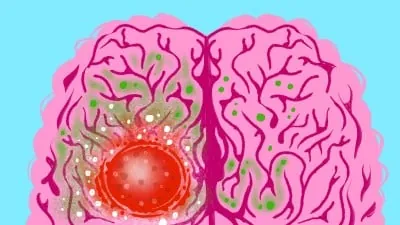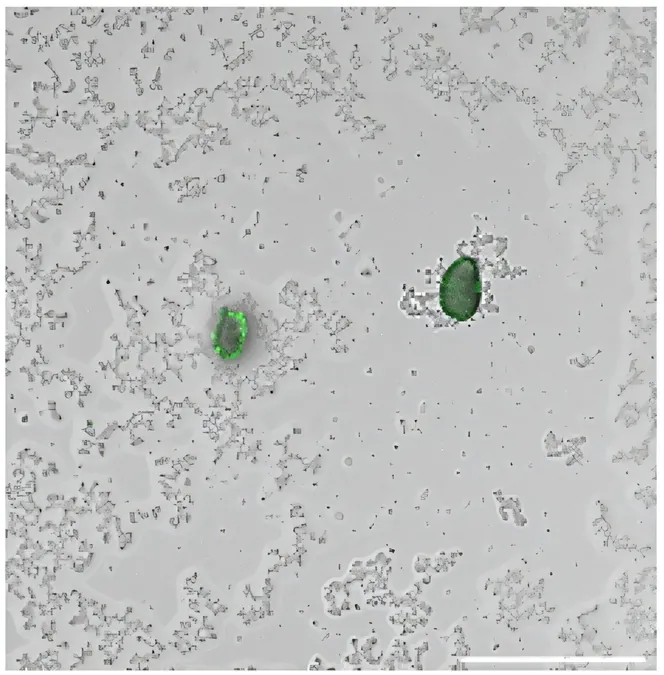
Revolutionary Dietary Shifts Might Hold the Key to Battling Glioblastomas!
2025-09-04
Author: Jacob
Glioblastomas: The Deadly Brain Tumor Targeting New Research
Glioblastomas, the most aggressive type of brain tumor, are notorious for their lethality, often leaving patients with only one to two years of life following diagnosis. These malignant cells aggressively invade surrounding brain tissue, making treatment incredibly challenging.
The Metabolism Mystery: What Makes Cancer Cells Tick?
Recent research from the University of Michigan has shed light on a groundbreaking distinction between how glioblastoma cells and healthy brain cells metabolize nutrients, particularly glucose. Researchers have discovered that glioblastoma cells exhibit unique metabolic behaviors that could be exploited for therapeutic advances.
In a pivotal study published in *Nature*, a team linked to the Rogel Cancer Center explored how glioblastomas utilize glucose compared to normal brain cells. This exploration opened the door for possible dietary modifications to slow tumor growth.
Dieting for Survival: Mouse Models Inspire Hope
In an exciting phase of their investigation, the researchers altered the diets of mouse models, leading to a significant decrease in tumor growth. Daniel Wahl, M.D., Ph.D., co-senior author of the study, emphasized the potential of dietary adjustments to pave the way for new treatment options.
Why Glucose Matters: The Power of Sugar in Cancer Cells
While both brain and cancer cells require sugar, their utilization diverges dramatically. Healthy brain cells harness glucose for energy production and neurotransmitter synthesis, essential for cognitive functions and overall brain health. But glioblastomas divert this sugar toward fostering further cancer cell growth.
Uncovering the Hidden Secrets: Amino Acid Starvation
Through their research, the experts noticed that while normal brain cells synthesize amino acids, glioblastomas appear to scavenge these building blocks from the bloodstream instead. This insight led them to theorize whether limiting certain amino acids could hinder tumor progression without harming healthy brain function.
Transformative Results: Diets Can Enhance Treatment Effectiveness!
In another compelling experiment, mice on amino acid-restricted diets demonstrated improved responses to chemotherapy and radiation, with notably smaller tumors compared to their counterparts fed a regular diet. This substantial finding indicates that dietary adjustments hold transformative potential in cancer treatment.
Towards the Future: Clinical Trials on the Horizon
The research team is rapidly moving towards clinical trials to evaluate whether targeted diets can also benefit glioblastoma patients. This multidisciplinary effort highlights the significance of collaborative research in the quest to uncover effective treatments for this treacherous disease.
A Call to Action: Can Diet Be the Game-Changer?
With current treatments often falling short and glioblastomas developing resistance over time, these dietary strategies provide a refreshing alternative in the fight against this aggressive cancer. As research progresses, the hope is that such innovative approaches could signal a new dawn in glioblastoma treatment, transforming patient outcomes and, perhaps, extending lives.









 Brasil (PT)
Brasil (PT)
 Canada (EN)
Canada (EN)
 Chile (ES)
Chile (ES)
 Česko (CS)
Česko (CS)
 대한민국 (KO)
대한민국 (KO)
 España (ES)
España (ES)
 France (FR)
France (FR)
 Hong Kong (EN)
Hong Kong (EN)
 Italia (IT)
Italia (IT)
 日本 (JA)
日本 (JA)
 Magyarország (HU)
Magyarország (HU)
 Norge (NO)
Norge (NO)
 Polska (PL)
Polska (PL)
 Schweiz (DE)
Schweiz (DE)
 Singapore (EN)
Singapore (EN)
 Sverige (SV)
Sverige (SV)
 Suomi (FI)
Suomi (FI)
 Türkiye (TR)
Türkiye (TR)
 الإمارات العربية المتحدة (AR)
الإمارات العربية المتحدة (AR)